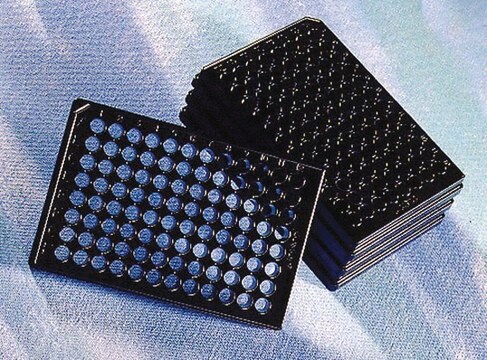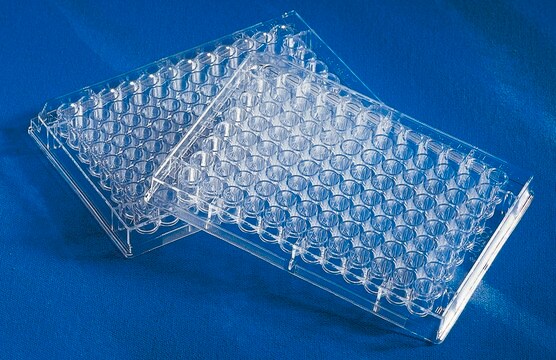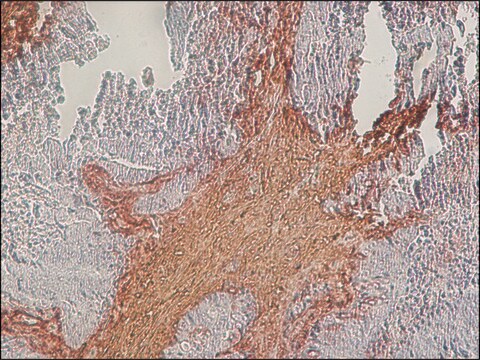MAB2035
Anti-Aggrecan Antibody
CHEMICON®, mouse monoclonal, MK-302
About This Item
Produits recommandés
Nom du produit
Anti-Chondroitin 6 Sulfate Antibody, clone MK-302, ascites fluid, clone MK-302, Chemicon®
Source biologique
mouse
Niveau de qualité
Forme d'anticorps
ascites fluid
Type de produit anticorps
primary antibodies
Clone
MK-302, monoclonal
Espèces réactives
canine, sheep, rat, rabbit, mouse, bovine, human
Fabricant/nom de marque
Chemicon®
Technique(s)
ELISA: suitable
radioimmunoassay: suitable
western blot: suitable
Isotype
IgG1
Numéro d'accès NCBI
Numéro d'accès UniProt
Conditions d'expédition
dry ice
Modification post-traductionnelle de la cible
unmodified
Informations sur le gène
human ... ACAN(176)
Spécificité
Immunogène
Application
RIA at 1:100-1:200.
Chondroitinase ABC digestion prior to antibody reaction is required for antibody reactivity. {0.5U/mL in 100mM Tris-HCL, 30 minutes room temperature} A dramatic proteolytic digestion of the core protein (e.g. with papain or pronase) significantly reduces the antibody reactivity.
Optimal working dilutions must be determined by the end user.
Forme physique
Informations légales
Vous ne trouvez pas le bon produit ?
Essayez notre Outil de sélection de produits.
En option
Code de la classe de stockage
10 - Combustible liquids
Classe de danger pour l'eau (WGK)
WGK 1
Point d'éclair (°F)
Not applicable
Point d'éclair (°C)
Not applicable
Certificats d'analyse (COA)
Recherchez un Certificats d'analyse (COA) en saisissant le numéro de lot du produit. Les numéros de lot figurent sur l'étiquette du produit après les mots "Lot" ou "Batch".
Déjà en possession de ce produit ?
Retrouvez la documentation relative aux produits que vous avez récemment achetés dans la Bibliothèque de documents.
Notre équipe de scientifiques dispose d'une expérience dans tous les secteurs de la recherche, notamment en sciences de la vie, science des matériaux, synthèse chimique, chromatographie, analyse et dans de nombreux autres domaines..
Contacter notre Service technique






